According to 2019 statistics (the most recent year available), only 38% of employees at Rome’s hotels are female and no doubt the percentage of women in management positions at the city’s hotels is much smaller. So the fact that Francesca Tozzi is the General Manager of one of Rome’s most talked about new luxury hotels speaks volumes about her brilliant skills and character.
I first met Francesca when she was the General Manager of the Capri Tiberio Palace, one of the island’s best luxury boutique hotels (and a member of the Shedir Collection), and immediately felt a kinship with her. We were connected by her sister Giorgia, who’s also a fabulous general manager in Rome (currently at Soho House).
I think Francesca is one of the most talented women working in the hotel sector, not just in Rome but anywhere. I was lucky enough to be one of the first guests at the Six Senses Rome in its pre-opening phase last year and got to see Francesca in action. She’s incredibly hard-working, down-to-earth, and dedicated to the wellbeing of her guests and staff. I conducted this interview with her in connection with my article about Rome as one of the top destinations of 2024 for AFAR’s current issue. I’m thrilled to share it as part of my series of interviews with creatives and entrepreneurs in Italy.
Why did you decide to return to Rome after all those years you spent in Capri?
It was a personal decision, to be honest. Because I was very happy with all the hotels I worked at over the course of these last years, not least the one in Capri, which was a very long term project—ten years—and was very successful. Living on the island could’ve worked for me a little longer, but I don't think it would have worked for my daughter growing up. She was nine, ten years old back then.
So the idea was to come to Rome and give her some roots, especially at school. And that was happening at the same time as the birth of the Shedir Collection, with all the hotels they’re now managing. And there was the project of Palazzo Roma, which I should have managed, so that’s why I came to Rome. I came to Rome thinking that I was going to open Palazzo Roma in January 2021 and then Six Senses came around. That was basically what happened. I was already in Rome working on this new project and things worked out differently.
Six Senses was always on my list as a brand because everything they do with these pillars of sustainability and wellness is very important for me. They put a lot of emphasis on emotional hospitality, which means managing the hosts—which we call hosts, not employees—with a very personal approach and making them understand that we take a less formal approach to guests and to the management itself. It has to be friendly and professional, it has to be engaging with guests. These are all aspects that have always interested me in my managerial style. Here they’re really guidelines.
Wellness, emotional hospitality, fun and quirky, doing things a bit out of the box to please the guest or make sure he has an amazing experience—these are things we all try to do in the hospitality business, but there’s never a real guideline for it. You’re not pushed to do it or pushing your team to do it.
How do you do it? How does Six Senses distinguish itself from all the other hotels that are opening, like Bulgari and Edition?
I believe Six Senses’ strength is its concept—this oasis inside the city, where we find green spaces full of natural light with food made with all local products, 50% plant-based, where we have an emphasis on wellness, from the physical treatments to yoga, meditation, sound healing—there are all these services that strive to give you that impact. We have the Earth Lab with workshops that speak about sustainability. We’re trying to involve outside people who come and do workshops.
It’s a whole culture that we’re trying to put into practice and it’s not easy, but we’re very motivated. From the morning meeting, when we try to do five minutes of meditation or we talk about what one department is doing with respect to the others to try to extend this wellness to guests. We push each other to find a way.
In resorts, there’s the community to help. There’s water to bring, there’s nature to defend, animals to protect—it’s easier. In the city... it’s a challenge. But months down the road, I realize that we’re finding ideas. How successful it is, we’ll see.
What kind of person is a Six Senses guest?
Certainly a guest who wants to be in an upscale environment. I would say luxury is a bit inflated now. But upscale, where we have the service of a luxury hotel, but a bit more informal. It’s not white gloves. It’s more laid-back, from our way of approaching, dressing, and speaking with guests—always professional, don’t get me wrong—but there’s more desire on the part of the front desk to interact.
We have these GEM, which are the Guest Experience Makers, who want to interact with the guests and personalize their stay, involving the activities that we do in house, regarding wellness, sustainability, and food—some paid, some complimentary—that make the guests understand what Six Senses is all about.
And what feedback are you receiving?
The feedback so far is that it's happening. Many know the brand, others are discovering it and they feel at ease because it’s all very open. You’ve seen how it is. It’s all one big space, especially the common areas. Then the spa is on the first floor, but the F&B, the Earth Lab, the entrance to the reception, it’s inviting.
We want to make it open doors to the city and to the guests who will be welcomed and involved in the world of Six Senses. I think one of the biggest differences from the other places I’ve been is the desire to interact much more with the guests, not just in the service we give them but for the human factor. I don't know if you had the same impression when you visited, but that’s our goal.
I saw a survey that says that for guests of luxury hotels, the most important thing that makes them return is the staff. You can have a beautiful hotel, you can have good food, but if the staff doesn’t put their heart into it, the guests feel it.
Exactly, and that is the hardest part. But I love this idea. We want to make you feel good, not just because you’re sleeping in a beautiful room, but we want to make you sleep well with a sleeping program, we want you to eat well with our Eat with Six Senses program. We want you to live as well and sustainably as possible.
Which is rather new for Rome, no?
In my brief experience, it’s new to have external guests who frequent the restaurant and the spa. Because during the opening, many people asked, “But... is the hotel open to external guests? Can we come for lunch or dinner?”
This is a mentality that has to change in Rome. Maybe because there weren’t enough hotels. Maybe this culture wasn’t developed enough. But with us and certainly with Bulgari and the other hotels, everybody will be marketing outside because that’s the nature of hotels in any big city. This will help Rome to change the trend of social life.
Now that you’ve come back to Rome after so many years away, how do you see the city? Do you see it changed?
That’s a big question! I love the city. I feel very attached and rooted, even if I was away. I always felt it was my point of reference, especially because my friends and family were here, and I came back often enough.
How has it changed? There’s a bit more buzz, more motivation to put things in place. Even on a political level, the approach to tourism is changing. We have a minister of tourism who’s trying to do a lot of things for the city. It remains very dirty, unfortunately. We have to do waste management.
But in my opinion, it’s started on a new path. Then how long we’ll take to reach certain objectives, how united we’ll be, as hoteliers, is a determining factor to resolve certain problems. We have to cooperate with the institutions.
I heard that there’s a desire on the part of the administration to focus on luxury travel instead of mass tourism.
I don’t know. I haven’t heard that. Certainly having so many luxury hotels opening should elevate the level of tourism because the more offer there is, we hope that the demand will increase and that it won’t be seen just as a hub for Fiumicino to then go to Tuscany or the Amalfi Coast. Hopefully visitors will stay in Rome more than one or two nights, as people did in the past, and take advantage of everything the city has to offer, not just the most famous places like the Colosseum and the Vatican, but there’s a lot more to do in Rome. There’s art, food, fun, and so many terraces opening.
The rest of the year, Rome can be lived like the rest of the European capitals, like London or Paris. I mean, don’t you go to Paris even in November, January, or February for a weekend, even if the weather is bad? Why can’t Rome have more visibility in the winter?
In my opinion, having more of these hotels and having more unusual experiences to offer guests, could help to lift up the level of the clients and to have them all year long, not only in the high season when it’s hot.
Which would be much more sustainable for the city...
Of course! Shopping is good in Rome. There are so many restaurants. Maybe the nightclubs could improve. But the restaurants are good and continue to improve, especially with these new hotels. And the centro, as big as it is, it’s improving, with all these facades they’re renovating.
Via del Corso has been completely restored and it’s much more beautiful than it was in the past. There are better stores, with respect to the outlet stores there were in the past. And even the part from the Apple Store to Piazza Venezia is improving. Even the part of Via del Tritone, with this big pavement. There’s La Rinascente. You can walk down Via Veneto to Zara without any problems. It connects everyone that lives in this larger part of the center.
Further Reading
You can read my aforementioned article for AFAR, which features Francesca and the Six Senses Rome, here.
For Architectural Digest, I wrote the worldwide design exclusive about the opening of the Six Senses Rome, which ran in the May 2023 issue. You can read the online version here.
I also covered the opening of the Six Senses Rome for Robb Report.
For NUVO, I wrote about the Capri Tiberio Palace, where I first met Francesca in 2019.
You can see all the interviews in this series here.


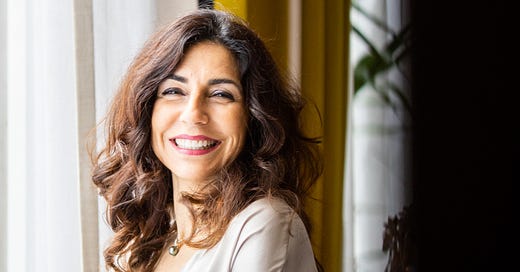



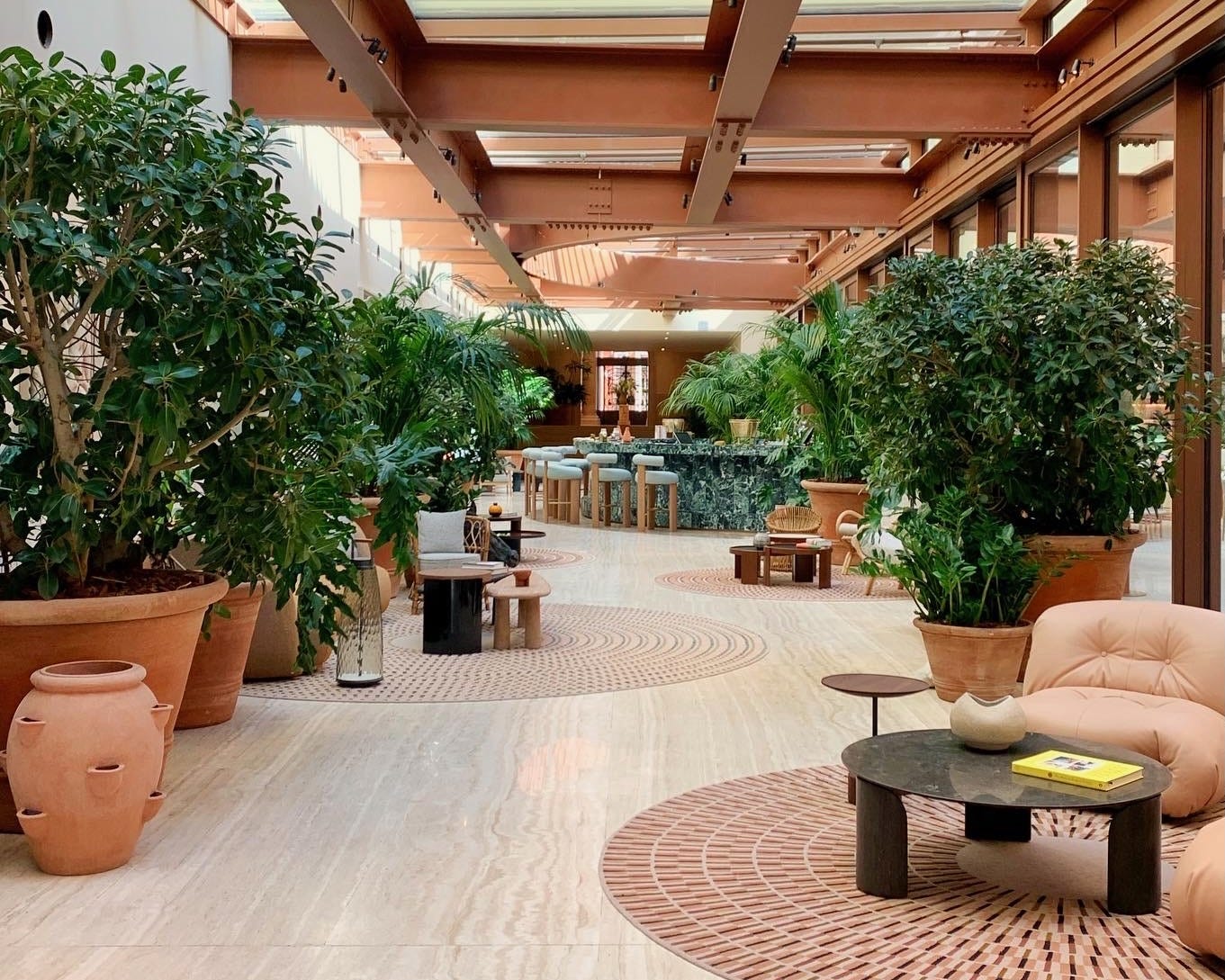
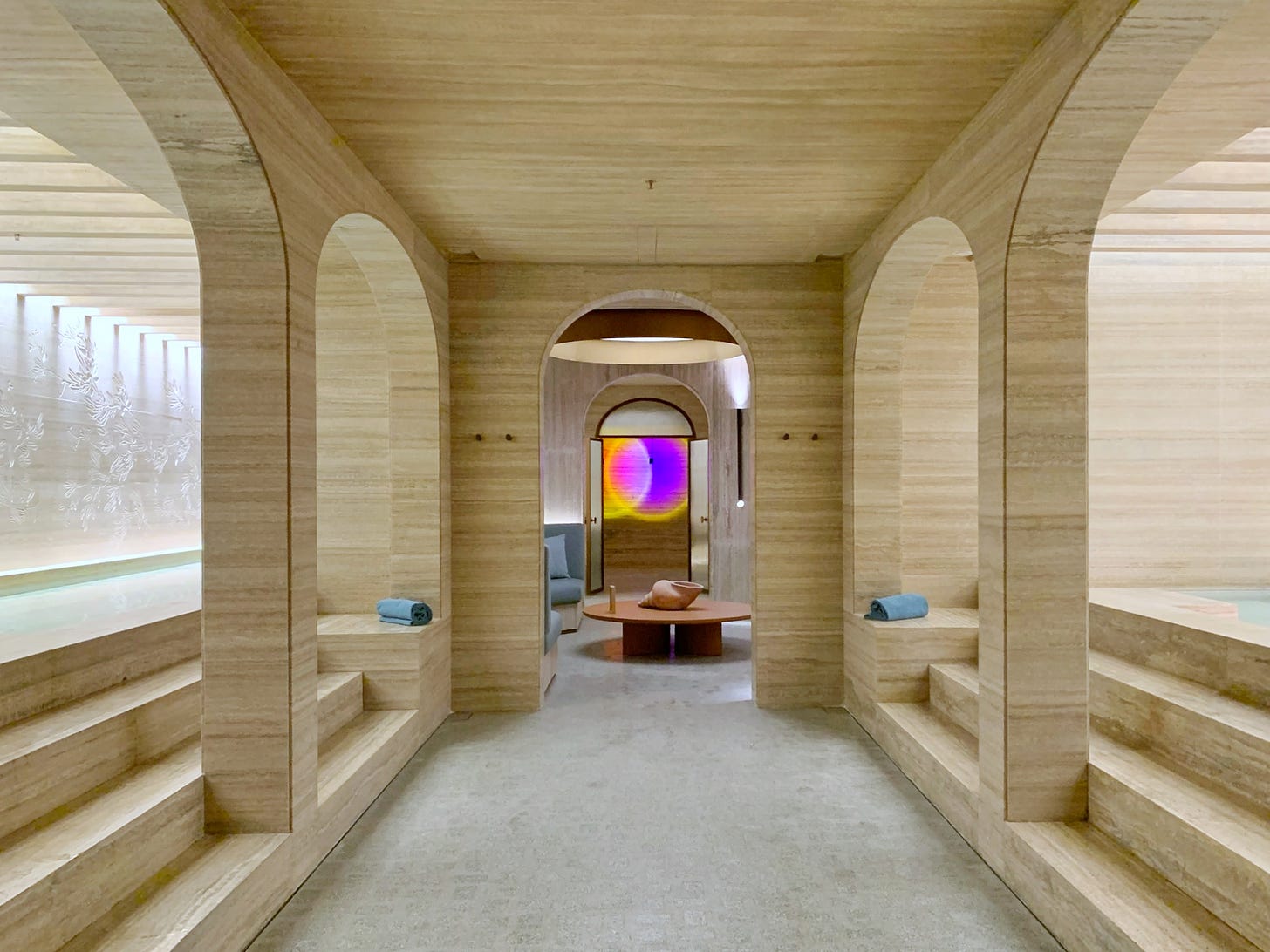
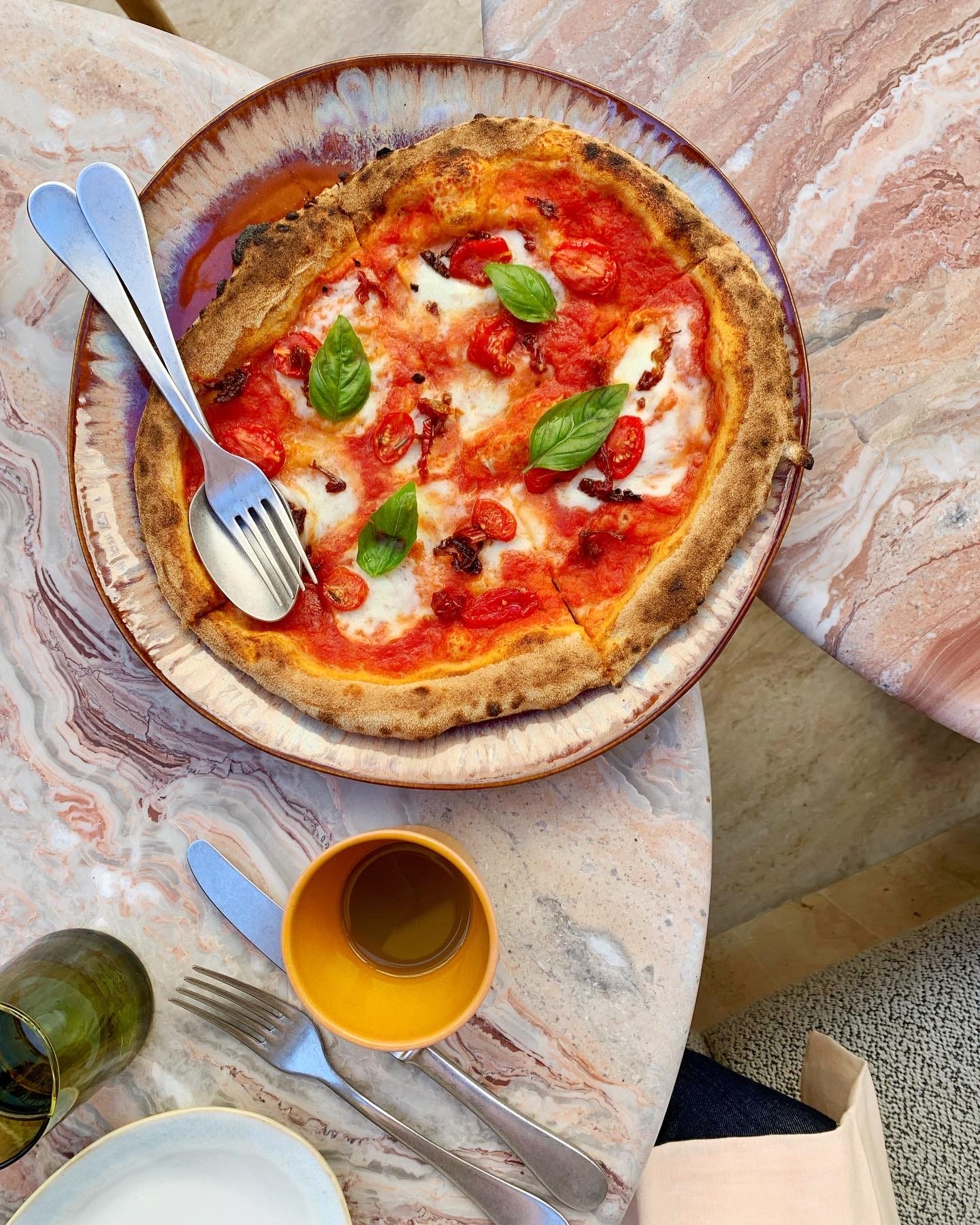
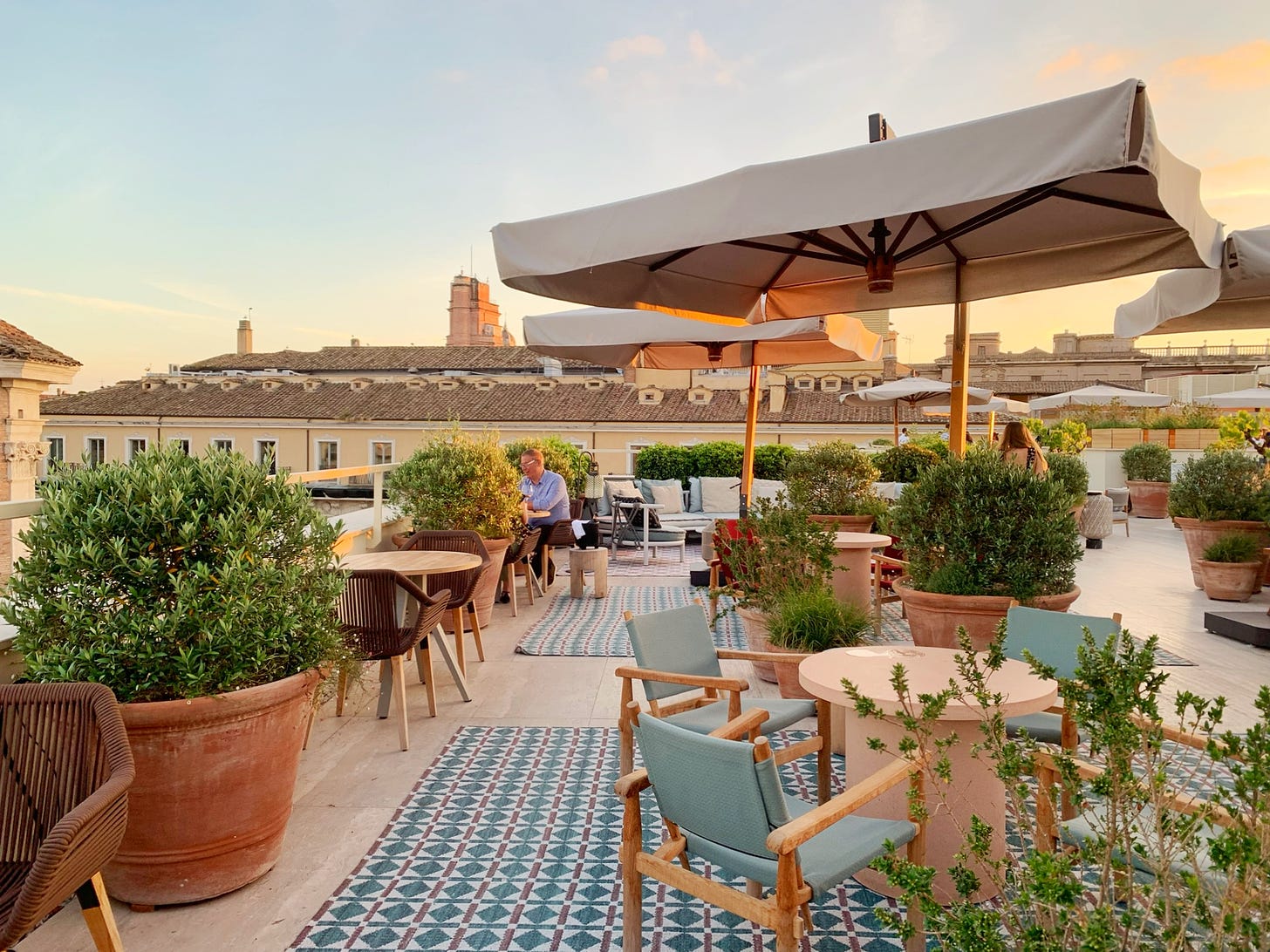
Berry berry nice, I like Italy, anything Italian, been there.
https://liborsoural.substack.com/p/rome-never-fell-the-empire-never
https://liborsoural.substack.com/p/rome-where-all-roads-end
https://liborsoural.substack.com/p/lady-gaga-and-czechwizard-at-it
https://liborsoural.substack.com/p/cleopatra